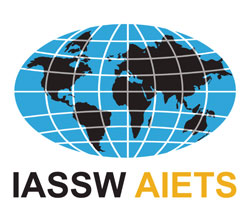An invitation of contributions to a pioneering publication, “Advancing Social Work Practice: Critical Race Theory in the Global African Diaspora,” to be published by Cognella, Inc. Under the editorship of Laurens Van Sluytman, Ph.D., Professor of Social Work and Assistant Dean at Morgan State University’s School of Social Work, this textbook is poised to be a transformative resource in the field. Join us in this venture to shape the conversation and practices in social work through the insightful lens of Critical Race Theory!
Description of the Book
This edited volume offers a comprehensive exploration of how Critical Race Theory (CRT) informs social work practices within the global African diaspora. Anti-Black racism is a deeply ingrained and systemic issue that has persisted for centuries, affecting individuals of African descent in various aspects of their lives. A scholarly examination is crucial to understanding and addressing this pervasive problem.
One of the most influential frameworks for analyzing and confronting anti-Black racism is Critical Race Theory (CRT). CRT is an interdisciplinary framework originating in legal scholarship and applied to fields such as sociology, education, and social work. It posits that racism is a systemic, structural issue, not just individual bias, perpetuating racial inequality. CRT informs research and practice in addressing anti-Black racism by examining its historical roots, analyzing structural aspects, acknowledging intersectionality, centering Black voices, evaluating policies, fostering activism, and enhancing education for a more equitable society. Thus, CRT has emerged as a robust framework for understanding and addressing racial disparities, systemic racism, and social injustice. Its impact extends far beyond the boundaries of the United States, resonating with scholars and practitioners of African descent and those who work with people of African descent across the global African diaspora.
This edited volume, “Critical Race Theory in Action: Voices from the Global African Diaspora,” seeks to amplify the voices and perspectives of scholars from diverse geographic locations who actively utilize CRT in their professional and academic work.
Chapter Themes
● The Caribbean, Latin, and South America:
The histories of colonization and slavery in the Caribbean, Latin, and South America are deeply interwoven, leaving an enduring impact on African descendants. Enslaved Africans played crucial roles in labor-intensive industries, shaping the economic prosperity of the colonies. This exploitation introduced racial hierarchies and discrimination, fostering contemporary issues of racial inequality and social stratification. However, it also facilitated a rich cultural synthesis evident in music, dance, religion, language, and cuisine. The resilience of African descendants is highlighted through movements for civil rights, Afro-Latinx identity, and social justice.
● Oceania – Australia, Hawaii, New Zealand
In Oceania, the histories of colonization and slavery are often overlooked but have significantly shaped the lives of people of African descent. European colonization in the 18th and 19th centuries introduced Africans to this region, influencing unique cultural expressions. These communities faced social hierarchies, discrimination, and economic disparities mirroring the experiences of enslaved Africans elsewhere. Yet, they displayed resilience and agency through movements for civil rights, cultural preservation, and recognition.
● Europe, Eastern Europe, and Russia:
The presence of African descendants in Europe, Eastern Europe, and Russia resulted from colonization and the transatlantic slave trade. In recent times, significant waves of African migration have occurred, fostering cultural syncretism. These regions continue to grapple with the economic disparities and social inequalities left by colonial exploitation and slavery. The resilience of African descendants is evident through their active participation in movements for civil rights, social justice, and anti-racism.
● Africa and the Middle East:
Colonization, slavery, and migration have deeply influenced people of African descent in Africa and the Middle East. The disruption of indigenous societies, exploitation of resources, and forced labor have left lasting economic disparities and social inequalities. Migration patterns have contributed to cultural diversity, blending African, Arab, and indigenous cultures. African descendants have been central figures in movements for independence, civil rights, and social justice.
● Asia, India, China, and the South Pacific:
The presence of African descendants in Asia, India, China, and the South Pacific dates back centuries. Historical trade routes and migrations have enriched these regions with diverse cultural expressions. Despite facing discrimination and economic disparities, African descendants have shown resilience through movements for civil rights, social justice, and cultural preservation.
Key Dates
| Action | Date (Deadline) |
| Call for Abstracts | March-June 2024 |
| Notification to Authors | Early July 2024 |
| Submission of Full-Length Chapters | 30 July 2024 |
| Peer Review | July – August 2024 |
| Reviewers’ Comments to Authors | mid-August 2024 |
| Submission of Revised Chapters | 30 October 2024 |
| Submission of the Book Manuscript | 31 November 2024 |
Submission Guidelines
- Interested authors should submit a 100-200 word abstract, plus 5-10 keywords, a list of authors and affiliations, and a short biography for each author (no more than 100 words) to the editor of the book to Laurens.vansluytman@morgan.edu. The corresponding author should be identified (by an asterisk, for example), and the corresponding email should be included. The editor will review all submitted abstracts and will invite potential authors to submit their full-length chapters if the abstracts are accepted.
- Authors should submit their chapters to the editors via email.
- All submissions should reflect ethical research and scholarship, and the editorial team will vet them. Potential authors will receive details of the formatting and word count.





